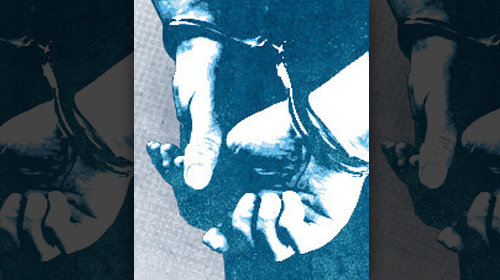
Today, the U.S. has the highest incarceration rate of any country in the world. With over 2.3 million men and women living behind bars, our imprisonment rate is the highest it’s ever been in U.S. history. And yet, our criminal justice system has failed on every count: public safety, fairness and cost-effectiveness. Across the country, the criminal justice reform conversation is heating up. Each week, we feature our some of the most exciting and relevant news in overincarceration discourse that we’ve spotted from the previous week. Check back weekly for our top picks.
Marijuana Legalization Debate to Move Beyond Washington and Colorado
The Marijuana Policy Project (MPP) announced that state lawmakers from Rhode Island and Maine intend to introduce bills that would tax and regulate marijuana in ways similar to the recently passed programs in Washington and Colorado. In addition, MPP announced that similar proposals will be submitted in at least two other states — Vermont and Massachusetts. In addition, advocates in Oregon are already planning to put legalization on the ballot again; The Oregonian’s editorial board would prefer lawmakers to craft a better policy and pass it themselves.
Iowa to Modify its Parole Board Rules to Increase Efficiency, Effectiveness
Currently, Iowa’s parole board rules require four votes from its five-member panel to approve a prisoner’s early release. But two of the board’s members work part-time, which often prevents the board from convening enough members to have a quorum. As a result, prisoners can wait up to 60 days before the entire board can gather to make decisions, delays that cost the state about $500,000 every year. To solve this problem, a legislative panel approved a new rule to take effect on December 5. Under the new rule, parole will be approved by the unanimous consent of a three-member panel using a more sophisticated risk-assessment tool to identify prisoners unlikely to reoffend if released early.
Supreme Court to Consider DNA Sampling from Arrested Persons
The Supreme Court recently agreed to take Maryland v. King, in which it will consider whether the Fourth Amendment allows states to collect and analyze DNA from people arrested and charged with serious crimes. Alonzo King raised the challenge to Maryland’s law when DNA material collected after an arrest led to his conviction in a separate case in 2003. In July, Chief Justice John Roberts allowed Maryland to continue collecting DNA samples from arrested persons until the case is decided. You can find case materials, background and analysis on SCOTUSBlog’s case page.
New Two-Year National Study Provides Detailed Picture of Pretrial Release
The Bureau of Justice Statistics recently released some rich and interesting data on pretrial release. Among the study’s many findings is this: defendants released on personal recognizance (that is, on only their word) were just as likely to appear in court as were defendants granted financial release (i.e., bail or bond).
California Exit Poll Indicates Broad Desire for Further Sentencing Reform
On November 6, California voters approved the ballot initiative to reform the state’s severe three-strikes law by a 69-31 margin. The new law is a step forward that could affect about 3,000 nonviolent prisoners currently serving life sentences, and a post-election survey of voters reveals that California voters want further reform. Notably, 81 percent “believe it is important to eliminate mandatory sentencing requirements to ensure judges can determine the appropriate length for sentences”. There’s more interesting data at the link above.
Learn more about overincarceration: Sign up for breaking news alerts, follow us on Twitter, and like us on Facebook.
